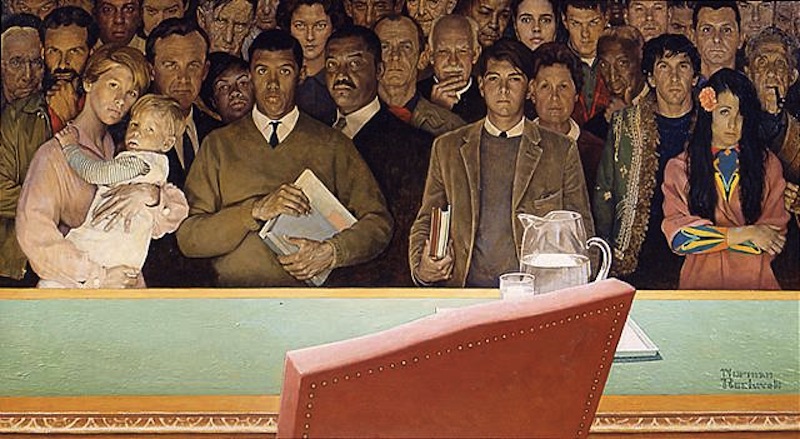Politics and Polecats
Scott Robinson
 Do you know what you stand for? Recent findings, particularly those focusing on Millennials, have given rise to speculation that younger Americans tend to hold self-contradicting opinions about the world they live in. Others have tried to minimize these statistical interpretations as small, explainable discrepancies that are being used to force contradictions onto a fictitious stereotype.
Do you know what you stand for? Recent findings, particularly those focusing on Millennials, have given rise to speculation that younger Americans tend to hold self-contradicting opinions about the world they live in. Others have tried to minimize these statistical interpretations as small, explainable discrepancies that are being used to force contradictions onto a fictitious stereotype.
Disclaimer: I’m not an ardent political junkie. But I do have a thoroughgoing interest in psychology, and in this case of apparent incoherence, I was reminded of a short story from Influence: The Psychology of Persuasion, a little book written by Dr. Robert Cialdini on principles of influence and their formative power in our lives.
Cialdini presents a study undertaken by researcher M.W. Fox on a mother turkey guarding her chicks from a major threat — in this case, a stuffed animal made to look like a polecat (think “weasel”). The mother seems to act coherently, protecting her chicks like a mother should, attacking the polecat when it approached. Fox found that the turkey’s maternal protection of her chicks was tied to one specific ‘trigger’: the unique vocalization of the chicks.
Fox wanted to see how influential that protective behavior was, so he stuffed a fake polecat with a recorder that continually played the chick’s cheeping. When this rigged polecat “approached” the mother turkey, rather than attack it she attempted to gather her greatest enemy under her wings and care for it.
The devious avian experiment serves to illustrate Cialdini’s argument that we often allow individual triggers — single points, phrases, or even keywords — to color our entire outlook on a given argument or position.
I wonder about the young Americans who participated in the recent polls. What thought was behind their responses? Was it careful, deliberative, informed? Or did they hear a particular keyword, the way a question was phrased, and respond instinctively?
This brief reflection isn’t, in the end, about polecats or politics. It’s about people. It’s about the quiet indictment that comes down on us when the dust settles and our fervor recedes. It’s about that faint voice in our heads asking us why we had to get so worked up. It’s a suggestion that we spend a bit longer thinking before answering, a little more time listening than reacting.
(Painting by Norman Rockwell)